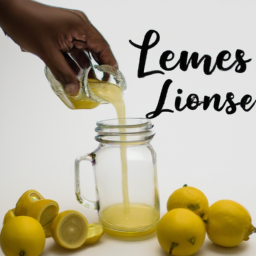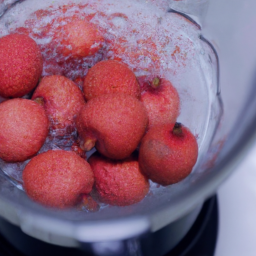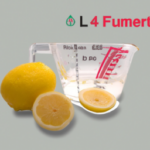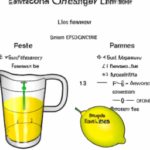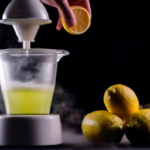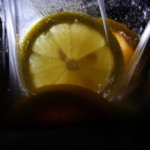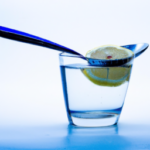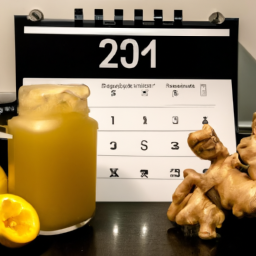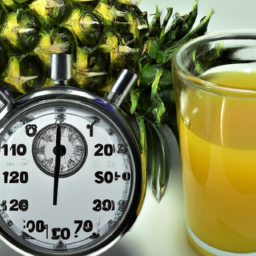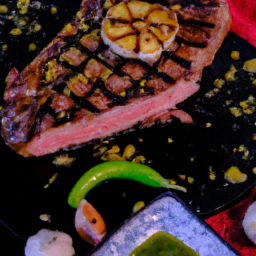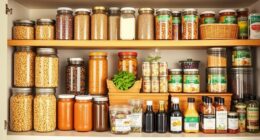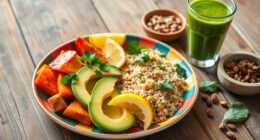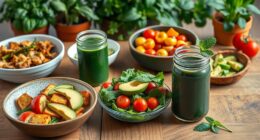In my kitchen, lemon juice concentrate stands out as a highly adaptable ingredient. It not only introduces a lively tang to both meals and beverages, but it also comes with numerous health advantages, including enhancing digestive health and strengthening the immune system. Moreover, what’s truly remarkable is how simple it is to prepare it yourself.
Before we get into the nitty-gritty of how to make lemon juice concentrate, it’s important to note that not all lemons are created equal. When choosing lemons for this recipe, you want to look for ones that are plump, heavy, and brightly colored, with a smooth, firm skin. These are signs of a juicy, flavorful lemon that will yield the most juice.
Now, let’s get started on making your own homemade lemon juice concentrate.
Key Takeaways
- Lemon juice concentrate can be made by reducing lemon juice to one-third of its original volume, and flavored variations can be added during the reduction process.
- Proper storage of lemon juice concentrate is important to preserve its quality and prevent spoilage. Glass containers are best, and preservatives like citric acid or ascorbic acid can be added to extend shelf life.
- Lemon juice concentrate is a versatile ingredient in cooking and can be used in salad dressings, marinades, cocktails, and desserts. It can also be used as a substitute for fresh lemon juice in most recipes.
- When preparing lemons for juicing, it is important to choose the right lemons for best taste and quality. Different lemon varieties have unique characteristics in flavor, acidity, and juiciness, and washing and drying the lemons before zesting and juicing is critical for best results.
Benefits of Lemon Juice Concentrate
You’ll wanna try this lemon juice concentrate – it’s not only a convenient ingredient, but it also packs a punch of health benefits.
When you use lemon juice concentrate, you’re getting a concentrated dose of all the vitamins and minerals found in lemons, such as vitamin C and potassium. These nutrients are important for maintaining a healthy immune system, preventing kidney stones, and even reducing the risk of heart disease.
Additionally, lemon juice concentrate can boost digestion and help detoxify the liver.
Apart from its health benefits, lemon juice concentrate is also a versatile ingredient in the kitchen. It can be used in a variety of culinary applications, from salad dressings and marinades to cocktails and desserts.
Its tangy and sour flavor profile adds brightness and depth to any dish, and its acidity can be used as a natural preservative.
With all these benefits, choosing the right lemons to make your own lemon juice concentrate is crucial.
Choosing the Right Lemons
When selecting your citrus, it’s crucial to pick the freshest and most vibrant lemons available to ensure the most flavorful outcome. There are different lemon varieties to choose from, each with its unique characteristics in terms of flavor, acidity, and juiciness. Some popular lemon varieties include Eureka, Lisbon, Meyer, and Ponderosa.
When choosing lemons, consider the types of acidity they possess. Some lemons are high in citric acid, which gives them a tangy and sour taste, while others are high in malic acid, which gives them a milder and more balanced flavor. Additionally, pay attention to the external appearance of the lemons. Look for lemons with smooth and firm skin, without any blemishes or soft spots. By selecting the right lemons, you can ensure that your lemon juice concentrate will have the best taste and quality. Moving on to preparation, the next step is to wash and sanitize your lemons before juicing them.
Preparation
Before diving into the preparation of lemon juice concentrate, it’s important to properly wash and dry the lemons to remove any dirt or bacteria.
Once the lemons are clean and dry, the next step is to zest them. This involves grating the outer layer of the lemon peel to extract the flavorful oils.
Finally, the lemons can be juiced to extract the tangy, acidic liquid that is the base of the concentrate. To make sure you get the most out of your lemons, it’s crucial to follow these steps carefully.
Washing and drying lemons
After picking fresh lemons from the tree, it’s important to wash and dry them thoroughly to remove any dirt or debris that may have accumulated on the skin. This also helps in removing any pesticides that may have been used in the cultivation of the lemons.
To wash the lemons, I usually fill a bowl with water and add a tablespoon of vinegar. I then place the lemons in the bowl and let them soak for a few minutes. After soaking, I rinse the lemons with clean water to remove the vinegar and any remaining dirt.
Once the lemons have been washed, it’s crucial to dry them thoroughly to preserve their freshness. I usually pat the lemons dry with a clean kitchen towel or paper towel. It’s important to ensure that the lemons are completely dry before proceeding to the next step of zesting them.
Zesting lemons is an essential part of making lemon juice concentrate, and it’s essential to have dry lemons to ensure that the zest can be easily removed from the skin.
Zesting lemons
To get the most flavor out of your lemons, it’s crucial to zest them using a fine grater or zester, gently scraping the outer layer of the lemon skin to release the fragrant oils. This step is important because the zest is where the most concentrated lemon flavor and aroma lies.
Here are some tips to ensure you get the most out of your lemon zest:
- Use only the colored part of the skin, avoiding the white pith underneath which can be bitter.
- Avoid pressing too hard when zesting to prevent scraping off the bitter pith.
- Zest the lemon just before juicing it to ensure maximum freshness.
Aside from enhancing the flavor of your dishes, lemon zest has creative uses too. You can mix it with salt, pepper, and other herbs to create a flavorful rub for meats, use it to garnish cocktails or desserts, or add it to your homemade salad dressing for an extra zing.
Additionally, lemon zest contains health benefits such as being rich in antioxidants and vitamin C.
Now that we’ve zest-ed our lemons, it’s time to move on to juicing them.
Juicing lemons
First, you’ll need to grab a fresh lemon and cut it in half. To get the most juice out of your lemon, gently roll it on a hard surface before cutting it. This will help to break down the pulp and make it easier to extract the juice. Once the lemon is cut in half, use a lemon squeezer or a reamer to extract the juice. If you don’t have these tools, you can also squeeze the lemon by hand, but be sure to remove any seeds that may fall into the juice.
Juicing lemons not only adds flavor to your drinks and dishes, but it also offers various health benefits. Lemons are a rich source of vitamin C, which is essential for maintaining a healthy immune system. They also contain antioxidants that help to protect your cells against damage caused by free radicals. Additionally, lemon juice can aid in digestion and may even help to lower blood pressure. With all these nutritional benefits, it’s no wonder why lemon juice is a popular ingredient in many recipes. Next, let’s move on to making the concentrate for your homemade lemonade.
Making the Concentrate
Now that the lemons have been juiced, it’s time to reduce the juice into a concentrated form.
This is done by heating the lemon juice in a saucepan over medium-high heat until it reduces to about one-third of its original volume. Stir occasionally to prevent scorching and ensure even reduction.
This process can take anywhere from 20-30 minutes depending on the amount of juice you’re working with. Alternative methods of making lemon juice concentrate involve using a slow cooker or an oven.
With a slow cooker, simply add the lemon juice and cook on low for 4-6 hours until it has reduced. For an oven method, pour the lemon juice into a baking dish and place in a preheated oven at 200°F for several hours until it has reduced.
Flavored variations can also be added during the reduction process, such as honey or mint leaves. Once finished, transfer the concentrate to a container and let it cool before storing in the refrigerator for up to six months.
Storing the Concentrate
When storing my homemade lemon juice concentrate, I need to choose the right container. Glass is the best option as it won’t react with the acid in the lemon juice.
Labeling and dating the container is also important to ensure I use the oldest concentrate first. While some people prefer to freeze their concentrate, I find refrigerating it is sufficient and it takes up less space in my fridge.
Choosing the right container
To keep your lemon juice concentrate fresh and flavorful, it’s essential to choose the right container. Choosing the right type of container is crucial to ensure that your concentrate stays at its best quality for as long as possible.
It’s best to use a container that is made of food-grade plastic or glass and has an airtight lid to prevent air from entering the container. Proper storage conditions are equally important. Store your container in a cool, dry place away from direct sunlight.
If you plan to store the concentrate for longer than six months, it’s best to freeze it. Freezing the concentrate will prevent it from going bad and will allow you to enjoy fresh lemon juice concentrate all year round.
Now that we know how to choose the right container and properly store our lemon juice concentrate, let’s move on to the next step: labeling and dating.
Labeling and dating
Labeling and dating your container is a crucial step in ensuring that your lemon juice concentrate stays fresh and safe for consumption. Proper storage is essential, but it’s equally important to know the shelf life of your concentrate. By labeling and dating your container, you can keep track of when your lemon juice concentrate was made and how long it has been stored, giving you an idea of its freshness.
To label your container, use a permanent marker to write the date that you made the concentrate. Additionally, include any other relevant information that you think might be helpful, such as the type of lemon used, the concentration, or the sugar added. This information can be helpful in adjusting the recipe later on.
Proper labeling and dating can help you avoid using a concentrate that is past its prime or, worse, spoiled.
When it comes to proper storage, you have several options, including freezing or refrigerating your lemon juice concentrate. Each method has its own set of advantages and disadvantages, which we will explore in the next section.
Freezing vs. refrigerating
One option for ensuring the freshness of your homemade lemon juice concentrate is to decide between freezing or refrigerating it based on your personal preferences and storage capabilities.
Freezing your lemon juice concentrate has several benefits. Firstly, it prolongs the shelf life of the concentrate, allowing you to store it for several months. Secondly, it helps to preserve the flavor and nutrients of the lemon juice concentrate, ensuring that it tastes just as good as it did when you first made it.
On the other hand, refrigerating your lemon juice concentrate may have some drawbacks. The extended storage time is shorter compared to freezing, and the flavor and nutritional value may deteriorate more quickly. Additionally, refrigerating can take up more space in your fridge, and may not be a viable option if you have limited space.
Ultimately, the decision to freeze or refrigerate your lemon juice concentrate comes down to your personal preferences and storage capabilities.
When it comes to using lemon juice concentrate, there are several ways in which it can be used to add a zesty flavor to your dishes.
Using Lemon Juice Concentrate
When I’m cooking, I often come across recipes that call for lemon juice concentrate. It’s convenient to have on hand, especially when fresh lemons aren’t available or in season. However, sometimes I prefer the taste of fresh lemon juice. In those cases, I’ve found that substituting fresh lemon juice for concentrate is possible with a bit of adjustment.
Additionally, lemon juice concentrate can be a great addition to drinks and cocktails, adding a tangy and refreshing flavor.
Recipes that call for lemon juice concentrate
If you’re looking for recipes that require a strong citrus flavor, adding lemon juice concentrate will surely do the trick. Lemon juice concentrate is a versatile ingredient that can be used in a variety of recipes, from sweet to savory. It’s a common ingredient in marinades, salad dressings, sauces, and even desserts. Lemon juice concentrate can also be used as a substitute for fresh lemon juice in most recipes.
One of my favorite recipes that calls for lemon juice concentrate is a lemon vinaigrette dressing for salads. Simply mix together olive oil, lemon juice concentrate, Dijon mustard, honey, and salt and pepper to taste. It’s a light and refreshing dressing that pairs perfectly with a variety of greens and toppings.
Another great recipe that calls for lemon juice concentrate is a lemon garlic marinade for chicken or fish. Mix together lemon juice concentrate, olive oil, garlic, salt, and pepper, and let your protein marinate for at least 30 minutes before cooking. The lemon juice concentrate gives the dish a bright and tangy flavor.
When it comes to substituting for fresh lemon juice, there are a few things to keep in mind. While lemon juice concentrate can be used as a substitute in most recipes, it’s important to remember that it’s much more concentrated than fresh lemon juice. As a general rule, use 1 tablespoon of lemon juice concentrate for every ½ cup of fresh lemon juice called for in the recipe.
Additionally, lemon juice concentrate may not work as well in recipes that require the acid in fresh lemon juice to react with other ingredients, such as in baking recipes that call for lemon juice to activate baking soda or baking powder.
Substituting for fresh lemon juice
Looking to add some zing to your recipe but don’t have fresh lemon juice on hand? No worries! You can easily replace fresh lemon juice with lemon juice concentrate. This is a great solution when you don’t have access to fresh lemons or don’t have the time to juice them.
The benefits of using lemon juice concentrate in cooking are numerous. First, it’s much more convenient and can be stored for longer periods without going bad. Second, it provides a consistent flavor that can be difficult to achieve with fresh lemons. Finally, it’s often less expensive than buying fresh lemons and juicing them yourself.
So, next time you’re in a pinch, try using lemon juice concentrate instead of fresh lemon juice for a quick and easy solution.
When it comes to adding lemon juice to drinks and cocktails, there are a few different options to consider. One popular choice is to use freshly squeezed lemon juice, which can add a bright and refreshing flavor to any cocktail. Another option is to use lemon juice concentrate, which can be more convenient and provide a consistent flavor.
Regardless of which option you choose, adding lemon juice to your drinks and cocktails can elevate the flavor profile and make them even more delicious.
Adding to drinks and cocktails
To enhance the flavor of your favorite drinks and cocktails, try experimenting with creative pairings of different juices and syrups. For example, adding a squeeze of fresh lemon juice to a gin and tonic can add a bright, citrusy note to the classic drink. Similarly, adding a splash of pomegranate syrup to a vodka soda can create a unique and fruity twist on a simple cocktail.
Don’t be afraid to get creative and try out different combinations to find what works best for you. Mixing and matching different flavors can be a fun and delicious way to elevate your at-home bar game.
And once you’ve found your perfect pairings, you can even try making your own homemade syrups and juices for an even more personalized touch. Speaking of homemade juices, let’s move on to some tips for making lemon juice concentrate.
Tips for Making Lemon Juice Concentrate
You’ll want to squeeze the lemons while they’re still at room temperature for the best results when making lemon juice concentrate. This will make the extraction process easier and more efficient.
Here are some additional tips to ensure your concentrate turns out perfectly:
- Use freshly squeezed lemon juice for the best flavor.
- Consider adding sugar or honey to the concentrate to sweeten it up.
- Experiment with different flavor variations by adding herbs like mint or basil, or spices like ginger or cinnamon.
When making lemon juice concentrate, it’s important to pay attention to every detail to avoid common issues that can affect the final product.
One issue you may encounter is crystallization, which can happen if the concentrate is stored for too long or if too much sugar is added. To prevent this, make sure to store your concentrate in an airtight container in the refrigerator and use it within a reasonable amount of time.
Troubleshooting Common Issues
So, I’ve been making lemon juice concentrate for a while now, and I’ve encountered a few issues along the way.
One common problem is cloudy concentrate, which is usually caused by excess pulp in the juice.
Another issue is the separation of juice and pulp, which can make it difficult to extract the concentrate.
And of course, there’s always the risk of spoilage if the concentrate isn’t stored properly.
In this discussion, I’ll be sharing some tips on how to troubleshoot these common issues and ensure that your lemon juice concentrate turns out perfectly every time.
Cloudy concentrate
Hey, if you want a clear lemon juice concentrate, make sure to strain the juice before simmering it down. Cloudy concentrate is often caused by the presence of pulp and other solids in the juice. Fortunately, there are a few clarifying techniques you can use to make sure your concentrate is crystal clear.
One of the easiest methods is to strain the juice through a fine-mesh sieve or cheesecloth before simmering. This will help remove any solids that may cause cloudiness. Additionally, you can use a technique called ‘cold settling’ to further clarify the juice. Simply refrigerate the strained juice for a few hours before simmering, and any remaining solids will settle to the bottom of the container. This will allow you to easily pour off the clear juice and leave the solids behind.
Keep in mind that removing solids may affect the flavor of your concentrate, so experiment with different clarifying techniques to find the one that works best for you and your desired flavor variations.
Now, let’s move on to the next section about the separation of juice and pulp. One important thing to note is that the amount of pulp you include in your concentrate can greatly affect its texture and flavor. So, if you want a smooth, pulp-free concentrate, be sure to strain the juice thoroughly before simmering.
Separation of juice and pulp
To achieve a smooth texture and clean flavor in your lemon juice concentrate, separating the juice from the pulp is crucial. The pulp contains fibers and bits of the fruit that can affect the clarity and quality of the concentrate. Additionally, removing the pulp allows you to adjust the consistency of the concentrate to your preference.
To separate the juice from the pulp, start by cutting the lemons in half and squeezing the juice into a strainer or cheesecloth-lined sieve. This will catch any seeds and large pieces of pulp. Once you’ve extracted all the juice this way, use a spoon or spatula to press the remaining pulp against the strainer or cheesecloth to extract as much juice as possible.
The resulting juice should be clear and free of pulp, making it ideal for use in a wide range of culinary applications. In addition, lemon juice concentrate has a high nutritional value, containing vitamin C and other antioxidants that promote overall health.
Moving on to the next section about spoilage, it’s important to note that proper storage is critical in preserving the quality of your lemon juice concentrate.
Spoilage
Proper storage is critical in preserving the quality of your lemon juice concentrate, especially if you want to avoid any potential spoilage that could ruin your hard work. Spoilage can occur due to various reasons, including exposure to air, heat, light, and moisture. It’s essential to prevent spoilage by storing the concentrate in a cool, dry, and dark place.
To extend the shelf life of your lemon juice concentrate, you can add preservatives like citric acid or ascorbic acid. These preservatives help prevent the growth of bacteria and fungi and maintain the acidity of the concentrate.
Additionally, you can store the concentrate in a sterilized glass jar with an airtight lid. Make sure to refrigerate the jar once it’s opened and use it within the recommended time frame to avoid spoilage.
By following these simple steps, you can ensure that your lemon juice concentrate stays fresh and flavorful for an extended period.
Frequently Asked Questions
How long will the lemon juice concentrate last in the freezer?
I freeze my homemade lemon juice concentrate in ice cube trays for easy portioning. It will last up to 6 months in the freezer. To thaw quickly and safely, place the desired amount in a container and let it sit in the refrigerator overnight.
Can I use bottled lemon juice instead of fresh lemons?
Did you know that fresh lemons contain more vitamin C than bottled lemon juice? Using fresh lemons adds flavor and health benefits to your cocktails. When adding lemon juice concentrate, start with a small amount and adjust to taste.
How much lemon juice concentrate should I use in a recipe compared to fresh lemon juice?
When using lemon juice concentrate, the concentrate ratio to fresh lemon juice is typically 1:2. However, it’s important to note that concentrate has a stronger flavor and higher acidity, so adjust accordingly. Benefits of using concentrate include longer shelf life and convenience.
Is there a specific type of container that is best for storing lemon juice concentrate?
For lemon juice concentrate, the best container options are glass or plastic bottles with airtight lids to prevent oxidation. Store in a cool, dry place away from direct sunlight to maintain freshness.
Can I use Meyer lemons instead of regular lemons for making lemon juice concentrate?
Did you know that Meyer lemons have a lower acidity level than regular lemons? This makes them perfect for cooking and baking. The benefits of using Meyer lemons include a sweeter flavor and a more complex aroma. They can be substituted for regular lemons in making lemon juice concentrate.
Conclusion
In conclusion, making lemon juice concentrate isn’t just easy, but it’s also incredibly beneficial. The concentrate can be used in a variety of ways and is a great way to add a burst of lemon flavor to any dish. With the right lemons and preparation, making the concentrate is a straightforward process that anyone can do.
So why not give it a try? Whether you want to add some zest to your salad dressing or make a tangy lemonade, lemon juice concentrate is the perfect ingredient.
And with our tips and troubleshooting advice, you can ensure that your concentrate turns out perfectly every time.
So go ahead, grab some lemons, and start making your own lemon juice concentrate today!
Ilana has been a vegan for over 10 years. She originally made the switch for health reasons, but soon found herself becoming more and more passionate about the ethical and environmental implications of a vegan lifestyle. Ilana is the author of The Graceful Kitchen, a blog all about veganism. She loves to cook up delicious and nutritious vegan meals, and share her recipes with others who are interested in leading a cruelty-free life. Ilana is also a strong advocate for using whole foods as the foundation of a healthy diet, and believes that going vegan is one of the best ways to achieve this.
